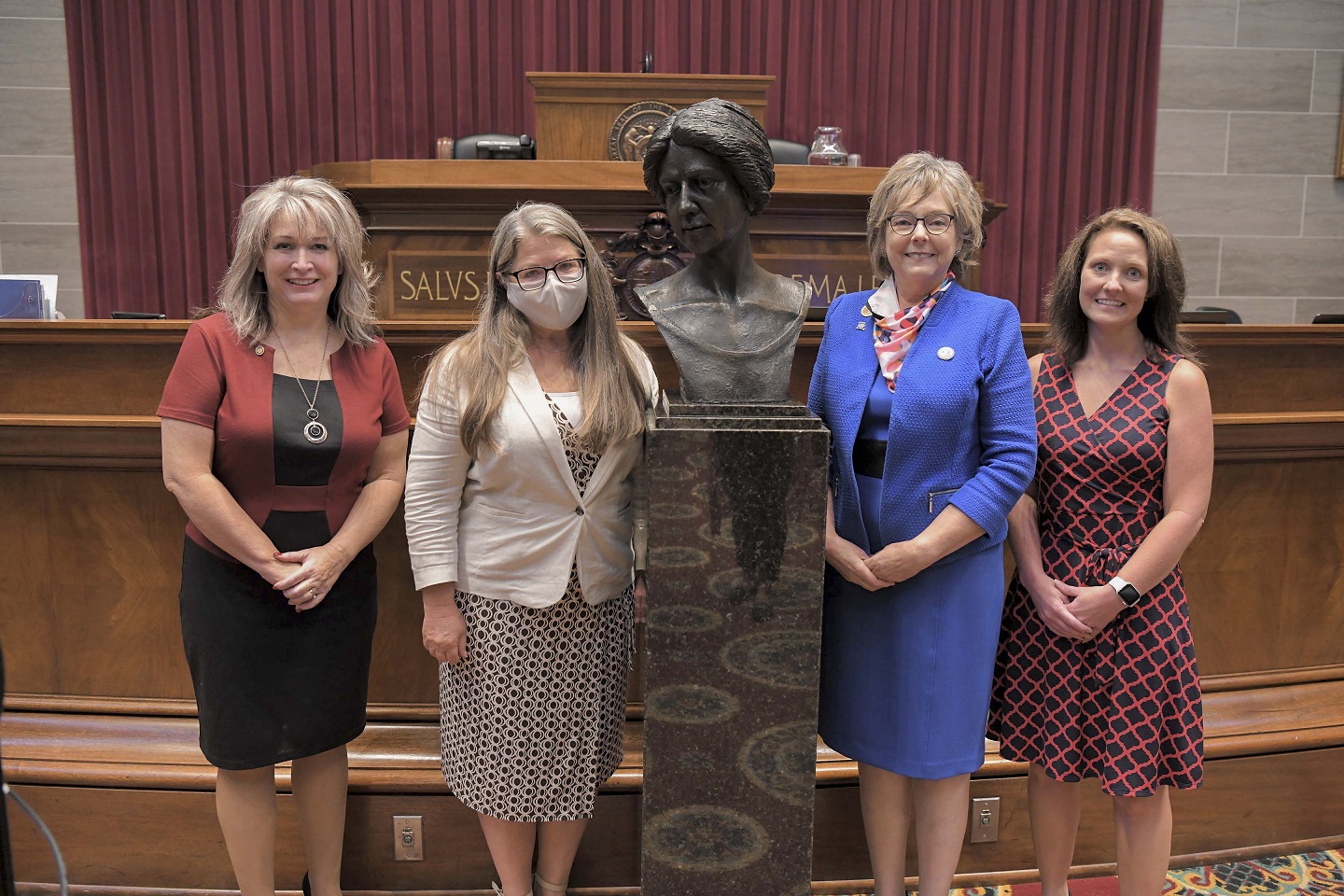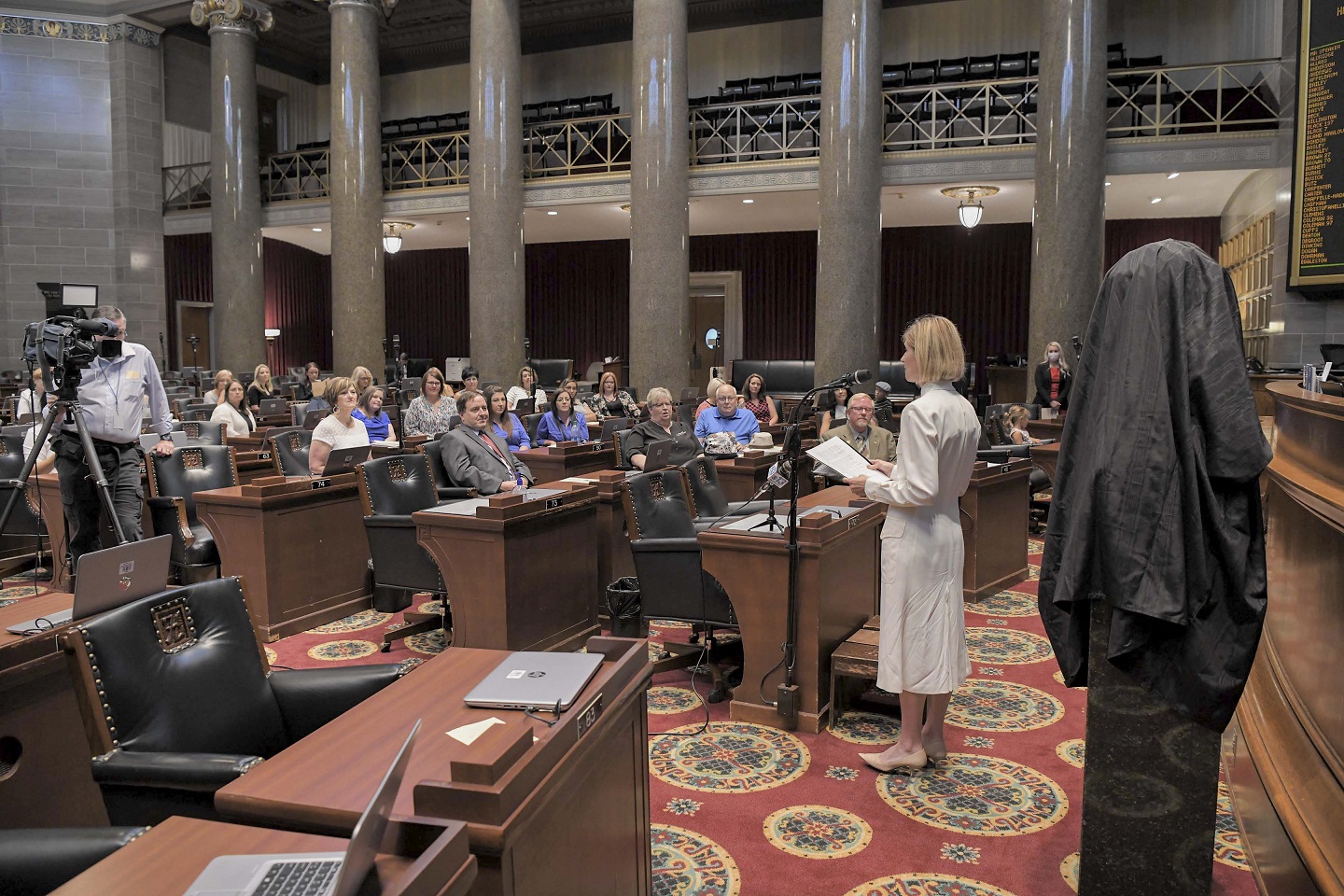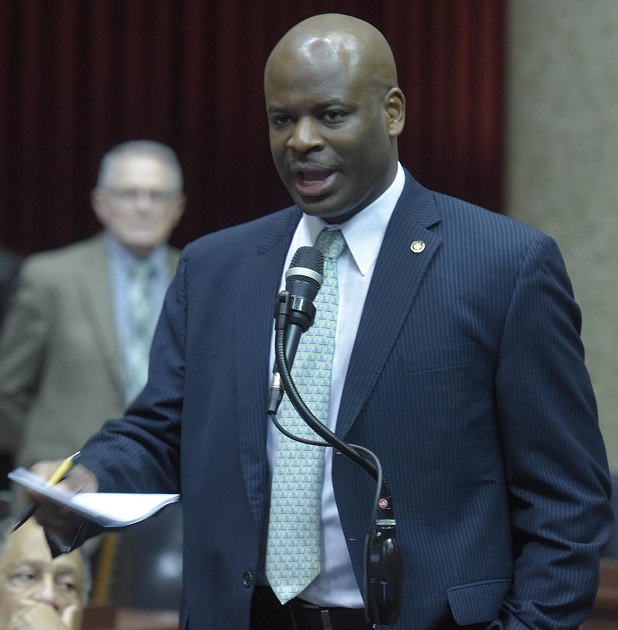A woman described as a “political trailblazer” is the latest inductee into the Hall of Famous Missourians.

Annie White Baxter was the first woman elected to public office in Missouri and the first female county clerk in the United States. Baxter was elected Jasper County Clerk in 1890, 30 years before women were eligible to vote. She later served as the state registrar of lands from 1908 to 1916, and as the financial secretary of the Missouri Constitutional Convention in 1922.
Baxter earned a reputation as one of the state’s best county clerks. She played a role in the planning and early work in constructing the current Jasper County Courthouse. Then-governor David R. Francis named her an honorary colonel for her work, leading to one of her nicknames, “Colonel Baxter.”
“Today is such a proud moment in the preservation of our Missouri history,” said Wendy Doyle, President and CEO of the Women’s Foundation.
Doyle said this recognition for Baxter is long overdue, and will inspire future generations.
“It is important to recognize women’s historical contributions in historic sites, state parks, and other public spaces. We are stronger when we can see ourselves in the lives and legacies of those who came before us … we know that recognizing the historical contributions that women have made in the past is an important part of empowering and inspiring women of all generations today,” said Doyle. “Today is a moment of great Missouri pride.”
The House Speaker selects inductees to the Hall. Speaker Elijah Haahr (R-Springfield) said people like Baxter paved the way for those who have influenced his life and the lives of those close to him.

He said it was his mother who was the first political advisor in his life, “who really gave me the words of wisdom that ended up putting me on course to take the job that I have today. I pass that along to my children, especially my three daughters who will grow up in a world where they don’t have to think about not having the opportunity to vote and not having the opportunity to run for office. It’s moments like these that I feel especially excited about not just what we’ve learned from the past but about the future of our state and our country,” said Haahr.
Current Jasper County Clerk Charlie Davis said Baxter’s efforts lead the way for women not just in his county or Missouri, but nationwide.
“Today I cannot even imagine our country or our counties or our state being run without women … but you know there are places all across this globe that women don’t have the right. They don’t have the right to vote, they don’t have the right to participate in any politics, and I think some of that needs to change, because I look at our country. Our country is much better today than it was in 1890 when Annie White Baxter was the first woman elected in the State of Missouri and the first woman elected as county clerk in our country,” said Davis.
Baxter’s induction came one week after the 100th anniversary of the passage of the 19th Amendment, which gave women the right to vote. Doyle called that an event of, “great significance for Annie White Baxter, knowing she oversaw the very elections that she couldn’t even vote in.”
The Hall of Famous Missourians is located in the third floor Rotunda of the Missouri State Capitol, between the House and Senate chambers. Others in the Hall include Walt Disney, Laura Ingalls Wilder, and Josephine Baker.




